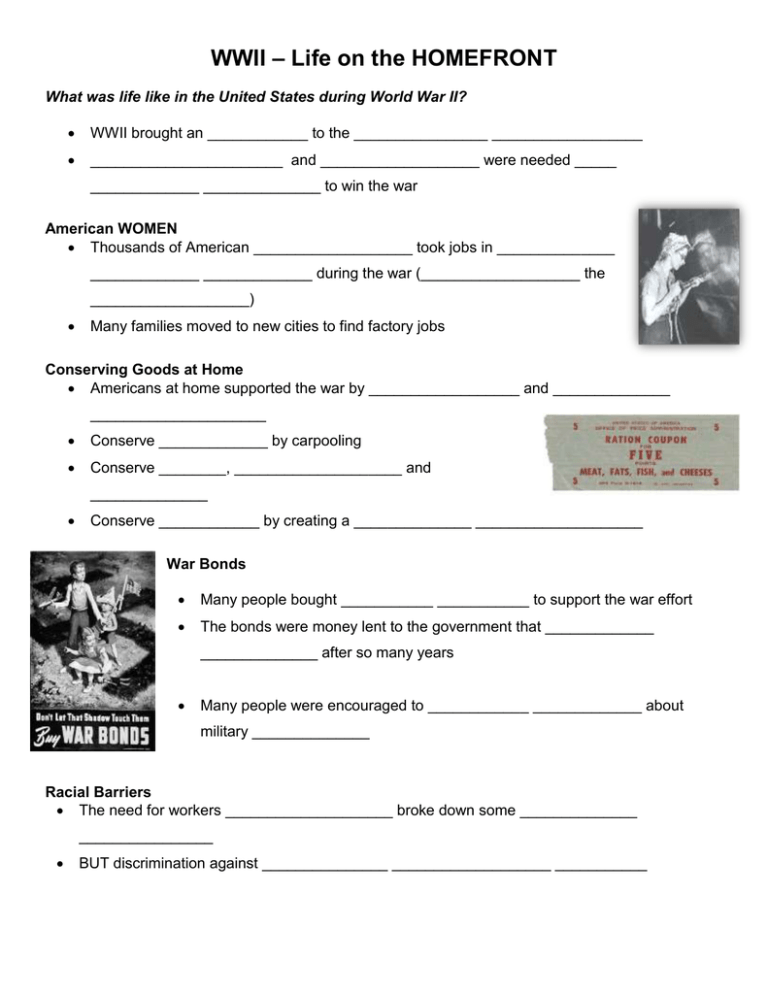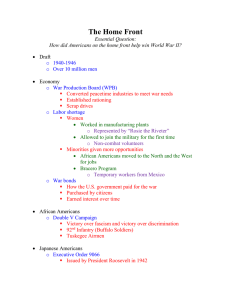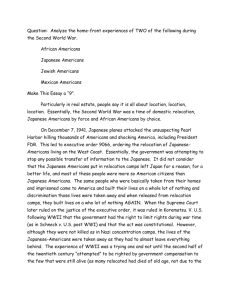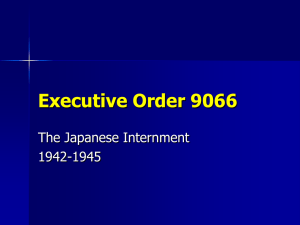– Life on the HOMEFRONT WWII
advertisement

WWII – Life on the HOMEFRONT What was life like in the United States during World War II? WWII brought an ____________ to the ________________ __________________ _______________________ and ___________________ were needed _____ _____________ ______________ to win the war American WOMEN Thousands of American ___________________ took jobs in ______________ _____________ _____________ during the war (___________________ the ___________________) Many families moved to new cities to find factory jobs Conserving Goods at Home Americans at home supported the war by __________________ and ______________ _____________________ Conserve _____________ by carpooling Conserve ________, ____________________ and ______________ Conserve ____________ by creating a ______________ ____________________ War Bonds Many people bought ___________ ___________ to support the war effort The bonds were money lent to the government that _____________ ______________ after so many years Many people were encouraged to ____________ _____________ about military ______________ Racial Barriers The need for workers ____________________ broke down some ______________ ________________ BUT discrimination against _______________ ___________________ ___________ Japanese Internment Camps ____________ - ___________ While many Japanese Americans served in the armed forces, others were treated with _________________ and ___________________, and many were forced into _______________________ _____________ After Pearl Harbor, why do you think Americans were suspicious of Japanese Americans? YOUR ANSWER: Many people were afraid that Japanese Americans that lived on the West Coast might be _____________ ______ _____________ helping ________________ attack the US However…. There was never any evidence that Japanese Americans acted as spies during WWII Relocation On February 19, 1942, President ___________________ issued Executive Order 9066. This forced ___________________ _________________ to ____________ from their homes to _________________________ camps. This was to keep them from ___________________ by monitoring their lives ______________ __________________ _______________ had to sell their homes and businesses to ____________________ to these camps They were allowed to take only what they could ______________. What they couldn’t sell was just left for the _____________________. Japanese Americans were put on buses and ____________________ to one of ______ ______________________ centers around the Untied States The _____________________ were surrounded by ______________ ________ and overseen by high wooden watch towers _________________ was almost nonexistent Schools, libraries, sports teams, churches, and _________________________ classes were created FDR considered the relocation ________________ during times of war The ________________ _________________ supported this claim in the case of ___________________________ vs. US Later, all camps were __________________ by early 1945





